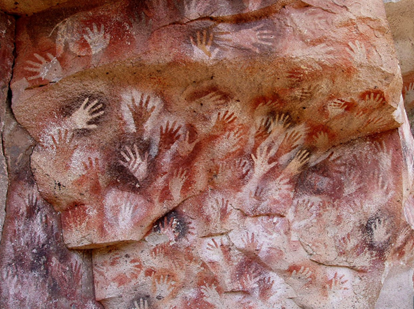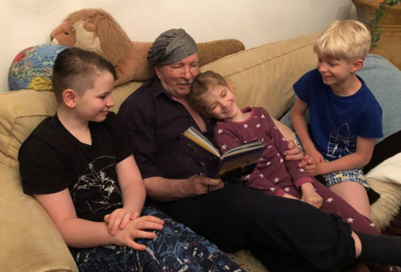Everything we do begins with a story. Without story, we would perish. We don’t get off that couch and head to the kitchen unless we have first told ourselves a little story: “There’s food in that kitchen, it will taste good, erase the feeling of hunger, and thanks to it I will survive.” We may not say those words out loud, and if we do, someone should call a doctor. But at the most primal level, that story is told and its lesson heeded.

We don’t marry unless we have first told ourselves a longer story: “Life will be better with this person. We’ll do this and that, have this and that.” We then follow that story – with all its plot and twists. Story is the trail we explore, the glue that binds one moment to the next. The fastest stories are called instincts. No words needed. Sudden danger? Better to hide behind that big rock than behind that little paper cup. Dots connected, alternative endings imagined – just as the writer does.
Story is calculation. Story is signpost.
Memories are stories we tell ourselves. We usually come out as the hero in those. That’s fun. “I was right, they were wrong.” Memory is little more than a storybook of survival on the hard drive. “Drink this, don’t drink that. Trust this person, don’t trust that one. I will never touch a hot stove again because I remember what happened the last time I did.”
Story puts the past at the service of the present as we prepare for tomorrow.
And because we are emotional creatures (distinguishing us forever from AI), survival means more than the mere physical. Memory stories work such magic as keeping the departed with us a while longer. AI’s algorithms might chart a novel or script, but magic? How would you code that? Story lends the prisoner some freedom in their cell. The great ‘IF’. Story is the bridge between what is and what could be.
DNA is story: Once upon a time, your family had eyes the color of this or that, were strong in this place and weak in the other one, so this is what you’ll get. Inheritance. Like the reading of a will. There’s a story with some eager readers. Story is deeper, stretches further, and matters more than paper, pen, pixels, or even words themselves can hint at. Those are only the frames for the painting. Like water in a glass, story can take any shape. It can teach, it can also distract. A needed respite as our strength is marshaled for the next effort.
A face is a great storyteller. Again, no words as we communicate in that moment of first glance such complexities as interest, lack of interest, hierarchy, opportunity, risk, comfort. Faces exchanging fast stories on a train. I love that.
What is the bee’s waggle dance but storytelling? “Hey guys, gals, great news. Twenty meters past that oak tree, heading ten degrees south of the sun, there’s the sweetest clover field. You want honey, that’s the spot.” Story is as fundamental to life as air, water, food, love. Remove any one of those and the others crumble like dust from a spent star.
My favorite story of all time literally is a stenciled handprint on a cave wall from the Upper Paleolithic period, some 40,000 years old. Storytelling at its most primal – “I was here. I existed.” Fast forward, and there have been whole volumes meant to say little more than that. Story is the mortal yearning for its place in the immortal. Today begging to be remembered. It’s why I write. Hoping to leave a fingerprint behind pointing toward the honey. This is my waggle dance.
So, when a child asks for a story at bedtime, they are asking for so much more than wizards, heroes, and treasures found. They’re asking for the keys to life itself. How to gain, how to lose. The container in which we pass those keys on to them is called a story.

3,576 Total Views, 5 Views Today






